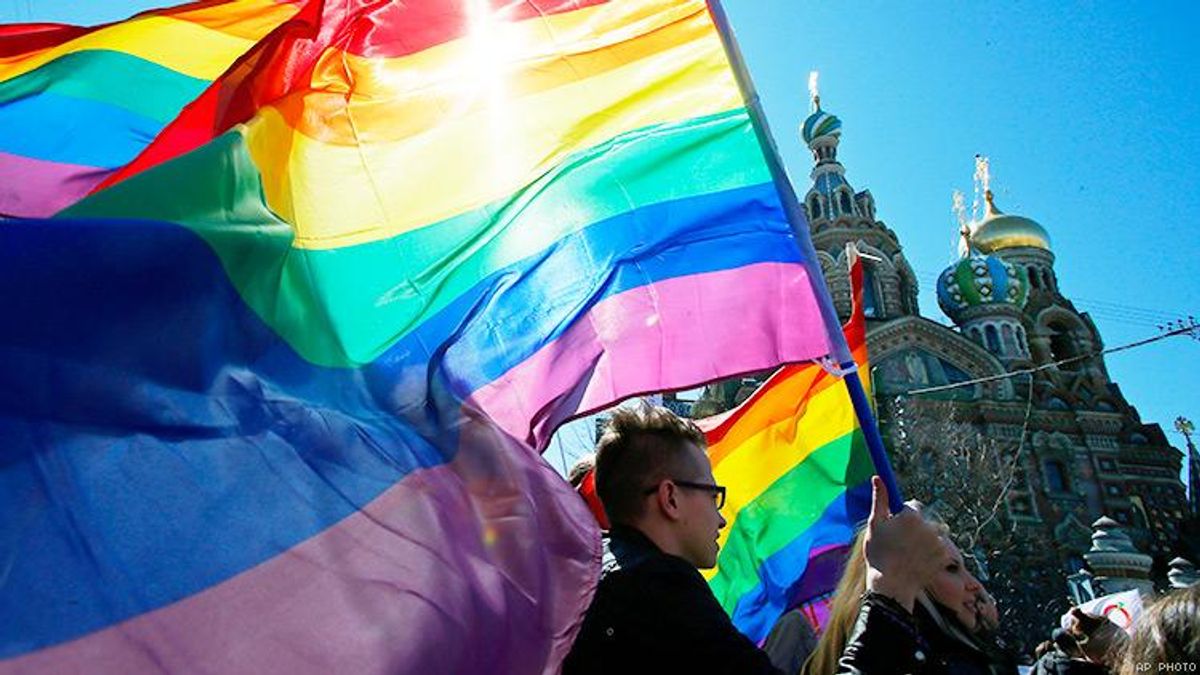With next year's FIFA World Cup set to take place in Russia, fans are being advised that displays of same-sex affection may not be welcome in the nation.
Fare, a group that fights racial, anti-LGBT, and other forms of discrimination in the sport of soccer (usually known as "football" outside the U.S.), is preparing a guide on the threats fans may face in Russia, especially in light of the "gay propaganda law" adopted in 2013, essentially banning any positive characterization of LGBT identity in venues accessible to minors.
"The guide will advise gay people to be cautious in any place which is not seen to be welcoming to the LGBT community," Fare executive director Piara Powar told the Associated Press. "If you have gay fans walking down the street holding hands, will they face danger in doing so? That depends on which city they are in and the time of day.
"The guide will also include some detailed explanations of for example the actual situation of the LGBT community in Russia. It is not a crime to be gay, but there is a law against the promotion of homosexuality to minors. Issues relating to the LGBT community are not part of the public discourse. Gay people have a place in Russia which is quite hidden and underground."
Some fans have asked if it will be OK to display rainbow flags at games, but FIFA, the international soccer organization, hasn't responded, Powar added.
Racial and ethnic discrimination is also a concern, Power said. There are extremist groups in Russia that have shown hostility to people of color or have embraced "far-right nationalism," he said.
"Do go to the World Cup, but be cautious," he advised.
The World Cup will be held June 14 through July 15, with games taking place in Moscow, St. Petersburg, Sochi, and other Russian cities.













































































Fans thirsting over Chris Colfer's sexy new muscles for Coachella